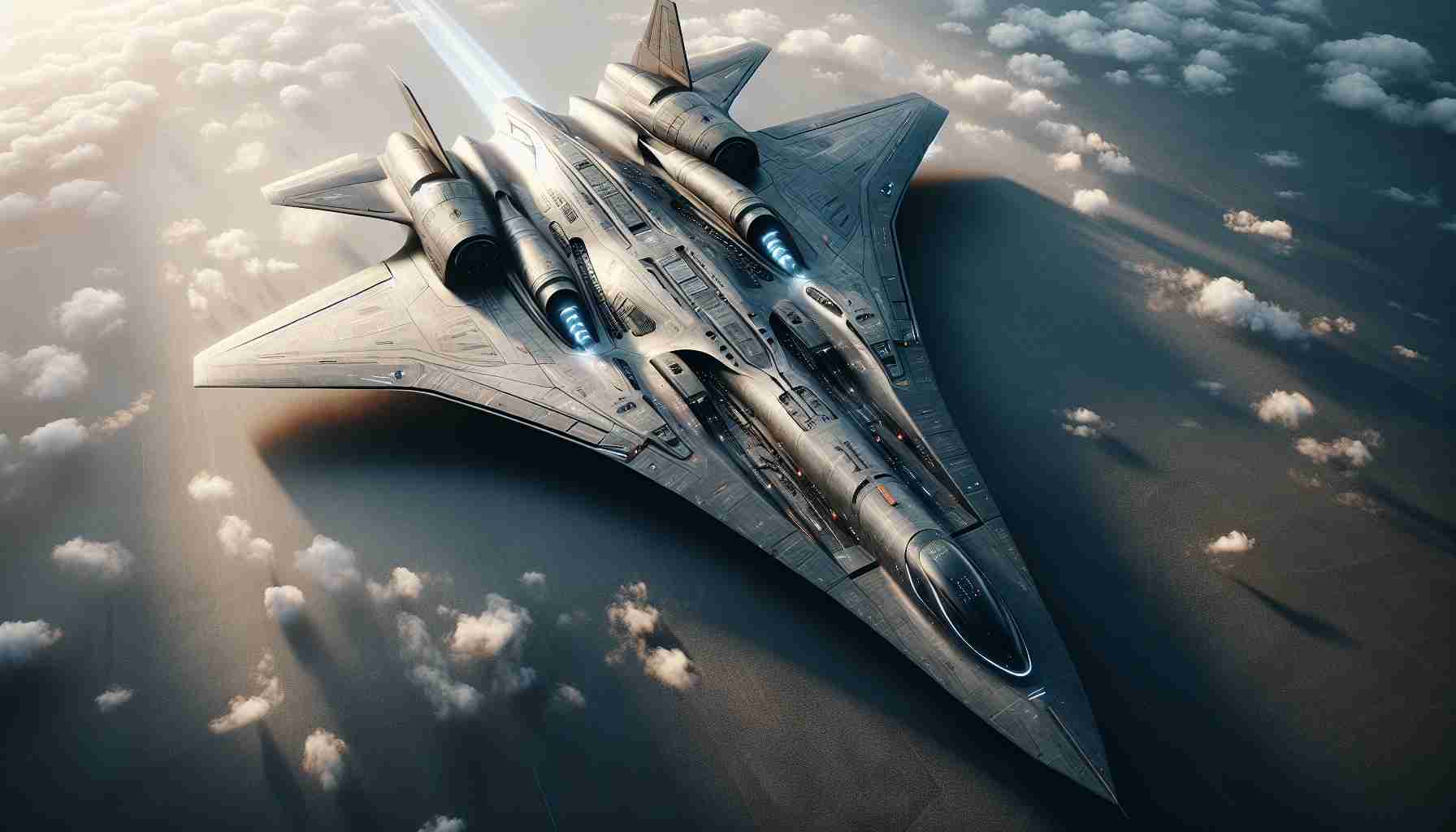Lockheed Martin’s hypersonic marvel, the SR-72, is setting the aerospace industry abuzz with its cutting-edge technology, promising to redefine the future of aerial warfare. Known as the “Son of Blackbird,” this next-generation aircraft is designed to achieve speeds exceeding Mach 6, doubling the velocity of its legendary predecessor, the SR-71 Blackbird.
The SR-72’s hypersonic capabilities hold immense strategic significance for military operations worldwide. Traveling at six times the speed of sound, this aircraft could potentially render conventional air defense systems obsolete by significantly reducing reaction time. With the ability to strike distant targets swiftly, it could serve as a formidable deterrent in global conflicts.
At the heart of the SR-72 is its revolutionary propulsion system, a combination of a traditional jet engine and a scramjet, facilitating smooth transition across varying speed regimes. This hybrid propulsion underscores a monumental leap in aerospace engineering, positioning Lockheed Martin at the forefront of hypersonic research. Moreover, the SR-72 will incorporate advanced stealth features, enhancing its capability to operate undetected.
While the SR-72 remains veiled in secrecy, defense analysts speculate that a prototype could soar as early as the mid-2020s. This project emphasizes a paradigm shift where speed and stealth are pivotal, presenting both incredible possibilities and daunting challenges. As nations keenly observe these developments, the SR-72 represents not just a technological marvel but a harbinger of the next era in air combat.
SR-72: A High-Speed Race to Redefine Future Aerospace Technologies
The unveiling of Lockheed Martin’s SR-72 hypersonic aircraft, known for its potential to exceed Mach 6, has attracted significant attention. While its potential to transform military operations is well-discussed, the implications for civilian life and technology development merit exploration.
How will the SR-72 influence civilian aerospace innovation? The technologies developed for military applications often trickle down to civilian sectors. The propulsion system combining jet engines and scramjets could revolutionize commercial air travel. Imagine reducing transcontinental flight times from hours to mere minutes. Though still a distant reality, these advancements could redefine global connectivity.
Could there be environmental impacts? The environmental footprint of hypersonic travel raises concerns. Increased fuel consumption and sonic booms could affect wildlife and contribute to noise pollution. Balancing speed with sustainability is crucial as these technologies advance.
A controversial arms race? As nations observe the SR-72’s development, anxieties of a new arms race emerge. Countries may intensify efforts to develop their own hypersonic capabilities, potentially destabilizing global power dynamics and sparking ethical debates on weaponization.
However, there are significant advantages beyond military applications. Surveillance and disaster response could see enhancements, with hypersonic drones monitoring vast areas quickly and efficiently, aiding in real-time data collection and response.
The SR-72’s development raises pivotal questions about the future of aerospace and its societal impacts. As technology evolves, the balance between progress and ethical considerations will shape this high-speed frontier.
For more information on aerospace technology, visit the Lockheed Martin website.







